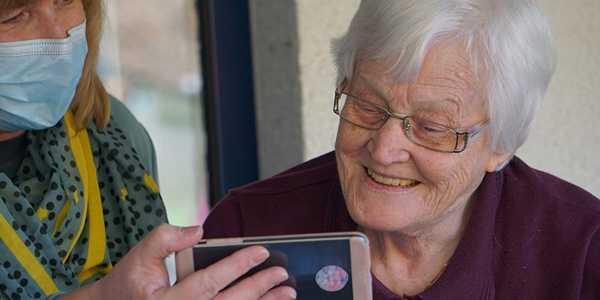If you're concerned about elder abuse, it's important to know the signs and how to seek help. This guide will help you understand what to look for and how to connect with a lawyer who can support you in getting the protection your loved ones deserve.
Types of Elder Abuse
Elder abuse can manifest in various distinct forms, each marked by its unique characteristics and repercussions:
Physical Abuse
Physical abuse involves the infliction of bodily harm on an elderly person. Examples include hitting, beating, and the inappropriate use of medication—such as administering excessive drugs to control behavior against the elder's will.
Verbal, Emotional, or Psychological Abuse
This type of abuse is often harder to detect and can include threats, insults, or isolation. Such actions can diminish an elder's emotional well-being and severely impact their self-worth.

Sexual Abuse
Sexual abuse is defined as any non-consensual sexual interaction. This includes unwanted touching or coercive sexual acts, often resulting in profound psychological trauma that can go unreported.
Financial Abuse
Financial exploitation involves taking advantage of an elder's financial resources through various means, including fraud, theft, or coercion, which can lead to significant financial harm and a decreased quality of life.
Caregiver Neglect
Neglect occurs when caregivers fail to meet an elder's basic needs, such as providing adequate food, medical care, or emotional support. This type of abuse can severely harm the elder's health and general welfare.
Identifying the Signs of Elder Abuse
Recognizing the signs of elder abuse is crucial for timely intervention. Signs can generally be categorized into three main areas:
Physical Signs
Keep an eye out for unexplained bruises, cuts, burns, or other injuries that may suggest physical abuse. Additionally, unexpected weight loss can indicate neglect or lack of proper care.
Behavioral Signs
Changes in behavior may signal abuse; increased fearfulness, anxiety, or withdrawal from family and friends are concerning indicators. If an elderly individual appears unusually quiet or overly reliant on their caregiver, it can raise further alarm about their treatment.
Financial Signs
Watch for sudden, unexplained withdrawals from bank accounts or unexpected changes in financial status. Signs may also include overdue bills despite adequate resources, which could indicate financial exploitation.
Types of Lawyers to Consider
When addressing elder abuse, it is essential to consider various types of legal professionals who can provide specialized assistance:
Elder Law Attorneys
Elder law attorneys focus on issues affecting older adults, including abuse and neglect. They understand the legal landscape surrounding elder rights, guardianship, and long-term care laws, making their support invaluable for victims.
Personal Injury Lawyers
These lawyers specialize in cases involving physical and emotional harm. They are well-equipped to represent elderly victims in civil lawsuits, helping them seek compensation for their suffering, thereby holding abusers accountable.
Family Lawyers
Family lawyers often play a key role when cases of abuse involve family dynamics. Their expertise can help navigate sensitive issues, such as custody disputes or protection orders, promoting safety and well-being for elder victims within family settings.

Finding Experienced Elder Abuse Lawyers
To effectively seek legal representation in elder abuse cases, consider the following strategies:
Referrals
Start by seeking recommendations from trusted sources, such as healthcare providers or eldercare advocates, who can lead you to knowledgeable lawyers with experience in elder law.
Online Resources
Explore platforms like the National Academy of Elder Law Attorneys (NAELA) and local bar association directories to find extensive listings of qualified attorneys specializing in elder issues in your region.
Consultations
Many lawyers offer initial free consultations. These meetings provide an opportunity to evaluate the lawyer’s expertise, too, and determine comfort with their communication style and approach to your case.
Legal Aid
For those who may face financial challenges, local legal aid organizations can provide access to affordable legal services, ensuring that everyone can seek justice.
Questions to Ask a Lawyer for Elder Abuse Cases
When considering legal representation for elder abuse cases, here are essential questions to pose:
- What specific experience do you have with elder abuse cases? This informs you about their capabilities in handling such cases effectively.
- How familiar are you with the elder protection laws in this area? Local expertise is crucial for successfully navigating legal intricacies.
- What is your fee structure, and what payment arrangements do you offer? Understanding financial obligations upfront is vital to avoid future complications.
- What strategies do you plan to use for my case, and what outcomes do you anticipate? This discussion helps clarify their approach and sets realistic expectations for your legal journey.
How to Protect Seniors from Abuse
At Home
Engage elders in social activities: Encourage participation in family gatherings or community events to keep them socially connected.
Ensure caregiver support: Make sure caregivers have proper training, resources, and regular support to prevent burnout.
Keep elders physically active: This helps reduce their dependency on others, lowering the risk of abuse.
Educate on financial safety: Teach elders how to recognize scams and monitor their financial activities to prevent exploitation.
In Nursing Homes
Research facilities: Look for homes with proper care policies, trained staff, and positive reviews.
Visit regularly: Frequent visits help maintain communication with both the resident and the staff, allowing you to spot potential issues early.
Report concerns promptly: If you notice anything concerning, report it immediately to facility staff or local authorities to prevent further abuse.
Taking Action Matters
Finding competent legal support for elder abuse cases is of paramount importance. Such assistance not only protects the vulnerable but also empowers them to reclaim their dignity and rights. Timely action is essential—acting swiftly to seek legal help can make a significant difference in the life of a victim. By advocating for themselves or their loved ones, individuals contribute to a safer, more just environment for all older adults.
